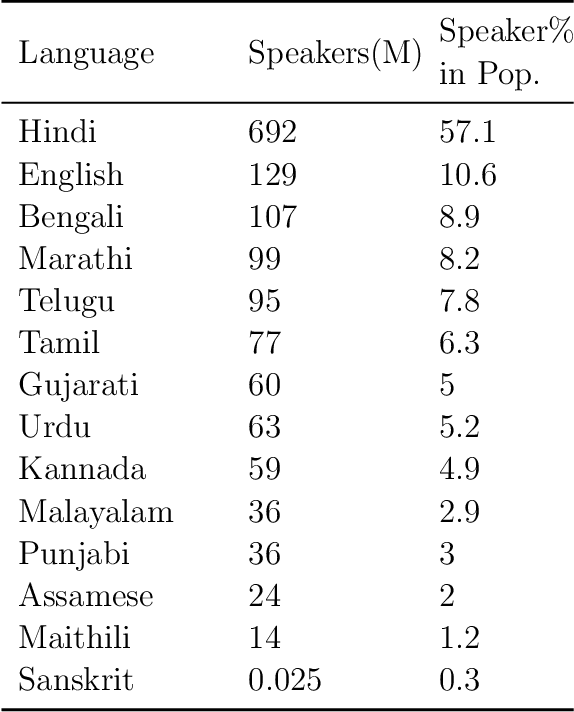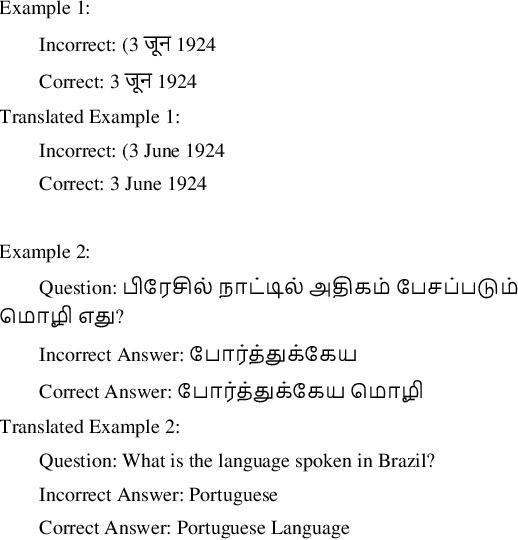Extractive Question Answering on Queries in Hindi and Tamil
Paper and Code
Sep 27, 2022

Indic languages like Hindi and Tamil are underrepresented in the natural language processing (NLP) field compared to languages like English. Due to this underrepresentation, performance on NLP tasks (such as search algorithms) in Indic languages are inferior to their English counterparts. This difference disproportionately affects those who come from lower socioeconomic statuses because they consume the most Internet content in local languages. The goal of this project is to build an NLP model that performs better than pre-existing models for the task of extractive question-answering (QA) on a public dataset in Hindi and Tamil. Extractive QA is an NLP task where answers to questions are extracted from a corresponding body of text. To build the best solution, we used three different models. The first model is an unmodified cross-lingual version of the NLP model RoBERTa, known as XLM-RoBERTa, that is pretrained on 100 languages. The second model is based on the pretrained RoBERTa model with an extra classification head for the question answering, but we used a custom Indic tokenizer, then optimized hyperparameters and fine tuned on the Indic dataset. The third model is based on XLM-RoBERTa, but with extra finetuning and training on the Indic dataset. We hypothesize the third model will perform best because of the variety of languages the XLM-RoBERTa model has been pretrained on and the additional finetuning on the Indic dataset. This hypothesis was proven wrong because the paired RoBERTa models performed the best as the training data used was most specific to the task performed as opposed to the XLM-RoBERTa models which had much data that was not in either Hindi or Tamil.
 Add to Chrome
Add to Chrome Add to Firefox
Add to Firefox Add to Edge
Add to Edge